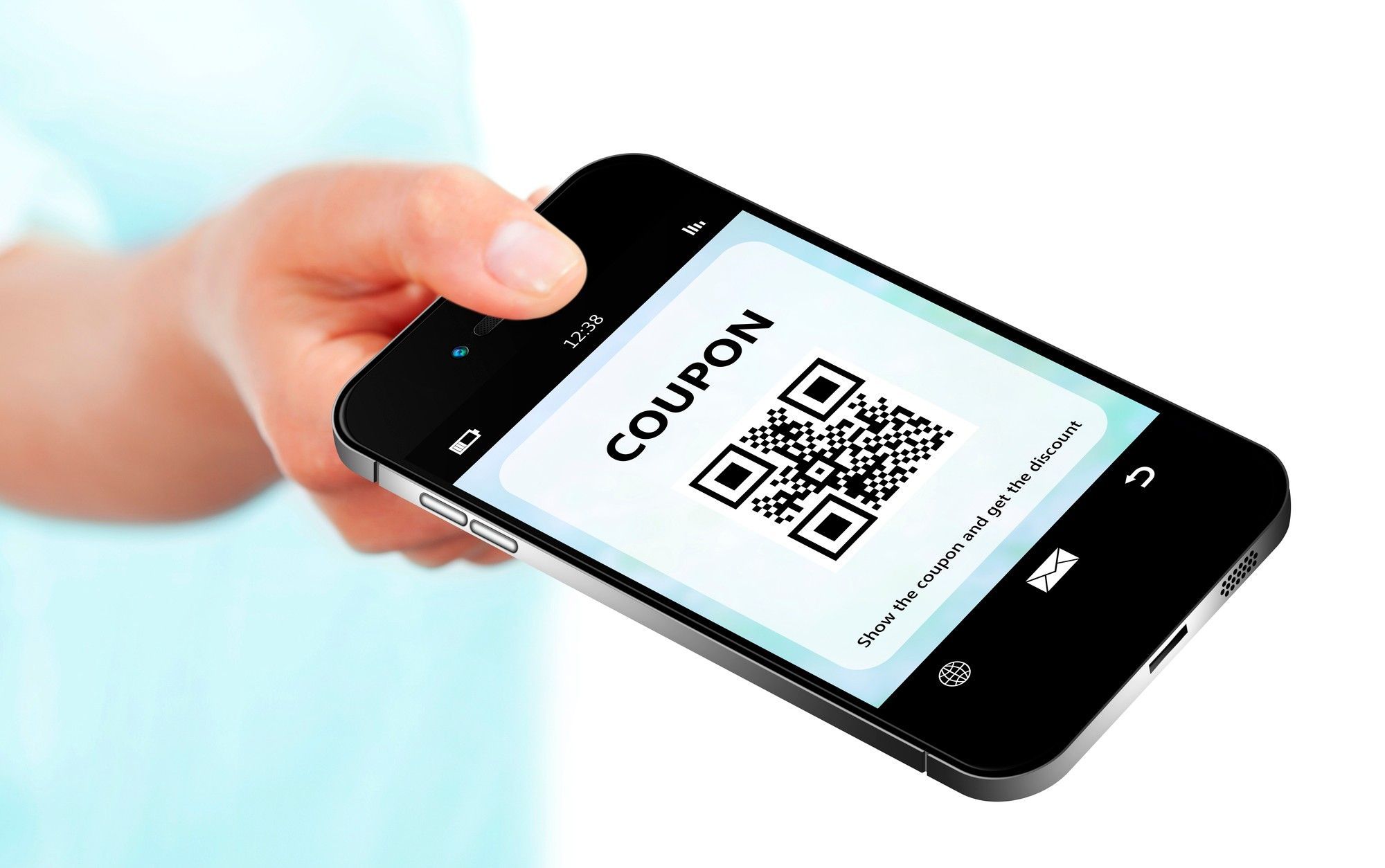Top Class Actions’s website and social media posts use affiliate links. If you make a purchase using such links, we may receive a commission, but it will not result in any additional charges to you. Please review our Affiliate Link Disclosure for more information.
If a business has ever sent text coupons to your phone without your permission, you may have wondered if such contact is legal. These types of communication are regulated by the Telephone Consumer Protection Act and can result in thousands of dollars in penalties and millions of dollars in class action settlements.
What Are Text Coupons?
Many companies send coupons via text or advertisements to consumers in order to solicit them into doing business with the retailer. These texts may contain information about upcoming sales, offers for free shipping, or coupon codes for a percentage off a purchase. Many types of companies have been accused of sending text coupon advertising to consumers. These companies include real estate agencies, car dealerships, clothing retailers, and restaurants.
According to Simple Texting, an SMS marketing software company, text coupons are one of the most popular ways to market to consumers today. These coupons come in three types: discount codes, barcodes or QR codes, and messages which tell consumers to “show this text at checkout”. Discount codes allow companies to offer a fixed value or discount tied to a word used at checkout. Barcodes or QR codes are sent to consumers so they can be scanned directly from the phone. “Show this message at checkout” texts are the simplest option and involve showing a prewritten message at checkout.
Although many companies use these strategies to advertise their goods or services, unsolicited text coupons are often in violation of the law. In many cases, these messages are prewritten, and are sent by using an auto dialing system. Auto dialing systems allow companies to send prerecorded or prewritten messages to hundreds or thousands of consumers at once, without human intervention. Even if you have received text coupons that appear to be personalized, it is likely that they were sent by an auto dialer. According to the Telephone Consumer Protection Act, which governs the ways that solicitors may contact consumers, use of an auto dialer is generally prohibited.
What Is the Telephone Consumer Protection Act?
The Telephone Consumer Protection Act (TCPA) is a set of restrictions and guidelines that telemarketers have to follow when contacting consumers. These rules regulate robocalling and text message marketing and other technologies used to market to consumers. The key purpose of these regulations is meant to protect consumers from intrusive or annoying contact from telemarketers.
How Does the TCPA Regulate Text Coupons?
Under the TCPA, text messages are considered equivalent to phone calls. As such, marketers are required to get prior written consent before sending texts to recipients.
Previously, a prior business relationship was sufficient justification for telemarketers to contact consumers. Prior consent may include texting a keyword to a short code or completing an online form. No matter how the telemarketer gains the consent, they must be able to provide proof of that consent. Telemarketers are also required to include clear opt-out language in text message advertising or messages including text coupons. Telephone Consumer Protection Act violations are regulated by the Federal Communications Commission (FCC).
Although companies are required to abide by the TCPA and may face monetary fines or legal action if they do not, many companies still send unsolicited advertising text messages to consumers. Many of these companies have been reported as not including an opt-out mechanism for consumers to withdraw their consent. Even companies that do include information on how to opt-out may not always abide by these requests.
 How Can You Stop Text Coupons?
How Can You Stop Text Coupons?
Text coupons can be annoying and intrusive, especially if you don’t want to receive them. There may be several ways to stop these advertisements.
If you continue to receive text coupons from the same number, you may be able to block the number from your phone. Many phones have internal call and text blocking software. Even if your phone does not have this feature, your cell phone coverage provider may offer the service.
Another way to block these messages is to install a paid or free app to block incoming spam texts or calls. These apps may work by flagging incoming texts or calls as potential spam, or they may be able to block these numbers from contacting you.
You may also be able to register your phone number with the National Do-Not-Call list. It is free to register your number with the list, and solicitors have one month to comply and cease contacting you. However, not every business abides by the Do-Not-Call list, so this may not be a sure way to prevent text coupons or text spam.
Consumers can also report spam texts to the Federal Communications Commission, which is in charge of enforcing the TCPA. Although it is easy and free to report harassing spam texts through the FCC’s online web portal, the agency does not follow up on individual complaints.
In order to ensure that companies stop bombarding your phone with intrusive and unwanted text coupons, you may want to speak with a qualified TCPA attorney about your legal options. Filing a class action lawsuit against the offending company may be one way to compel them to stop contacting you. Additionally, you may also be able to collect compensation for these intrusions on your privacy.
What Are the TCPA Penalties for Receiving Unwanted Text Coupons?
If a company sent text coupons to your phone without your prior express consent, those messages could constitute Telephone Consumer Protection Act violations. Under this Act, violations can result in penalties of up to $1,500 per message depending on whether or not those violations were willfully committed. The National Law Review reports that a new provision for the TCPA may increase penalty amounts to up to $26,000 per violation.
If you wish to file a class action lawsuit regarding the issue, there is no cap on statutory damages. With that in mind, class action settlements in these cases can easily reach into the millions of dollars due to the high number of violations generally involved.
 What Text Coupon TCPA Violations Lawsuits Have Been Filed?
What Text Coupon TCPA Violations Lawsuits Have Been Filed?
Many lawsuits have been filed against companies for Telephone Consumer Protection Act violations regarding text messages. These suits tend to relate to allegations that the defendant failed to get prior written consent before sending text coupons or failed to provide options to end the contact.
In a suit settled earlier this year, two plaintiffs alleged that a number of Las Vegas-based entertainment companies unlawfully sent text coupons to consumers without prior consent. Class action settlements, in this case, resulted in more than 100,000 Class Members receiving a total of $21.8 million in show tickets. This TCPA Class Action Lawsuit is Case No. 2:14-cv-01125-RFB-BNW filed in the U.S. District Court for the District of Nevada.
Another suit that has since closed involved allegations that Checkers Drive In violated the TCPA by failing to include sufficient opt-out language in their text messages sent to consumers. The settlement required Checkers to stop using its database of cell phone numbers and resulted in class action settlements of two $5 vouchers per Class Member. This Text Coupons Class Action Lawsuit is Case No. 1:17-cv-09219 filed in the U.S. District Court for the Northern District of Illinois.
Another class action lawsuit was filed by plaintiff Ryan Coyle against Contextlogic Inc. in April 2020, advertising Wish.com. Coyle alleged that the company sent unsolicited text messages after he created an account on the defendant’s website. The texts included in the suit also didn’t seem to include any opt-out language. Impacted consumers in this case received $45 to $50 in the settlement.
This Text Coupons Class Action Lawsuit is Case No. 5:20-cv-00907-RSWL-KK filed in the U.S. District Court for the Central District of California.
In all of these cases, the defendants admitted to no wrongdoing.
What Legal Action Can You Take?
If you received text coupons that you feel were sent in violation of the TCPA, you may be eligible to file a class action lawsuit against the company responsible. This includes texts sent without prior express written consent, sent without opt-out language, and other messages that violate federal law. Class action settlements for TCPA violations vary but can reach into the millions.
Join a Free Text Message Coupon Class Action Lawsuit Investigation
If you have received coupons or sales advertisements in a text message from a restaurant or clothing retailer and your phone number is registered with the National Do Not Call registry, you may be entitled to compensation.
This article is not legal advice. It is presented
for informational purposes only.
ATTORNEY ADVERTISING
Top Class Actions is a Proud Member of the American Bar Association
LEGAL INFORMATION IS NOT LEGAL ADVICE
Top Class Actions Legal Statement
©2008 – 2024 Top Class Actions® LLC
Various Trademarks held by their respective owners
This website is not intended for viewing or usage by European Union citizens.


 How Can You Stop Text Coupons?
How Can You Stop Text Coupons? What Text Coupon TCPA Violations Lawsuits Have Been Filed?
What Text Coupon TCPA Violations Lawsuits Have Been Filed?













6 thoughts onAre Text Coupons in Violation of the Telephone Consumer Protection Act?
Add me
Add me
add me.I get about 5 to 6 text a day
Add me please
add me in,,and get that Wish website BIG RIP OFF
please add me. I get on average 5 or more unsolicited texts daily